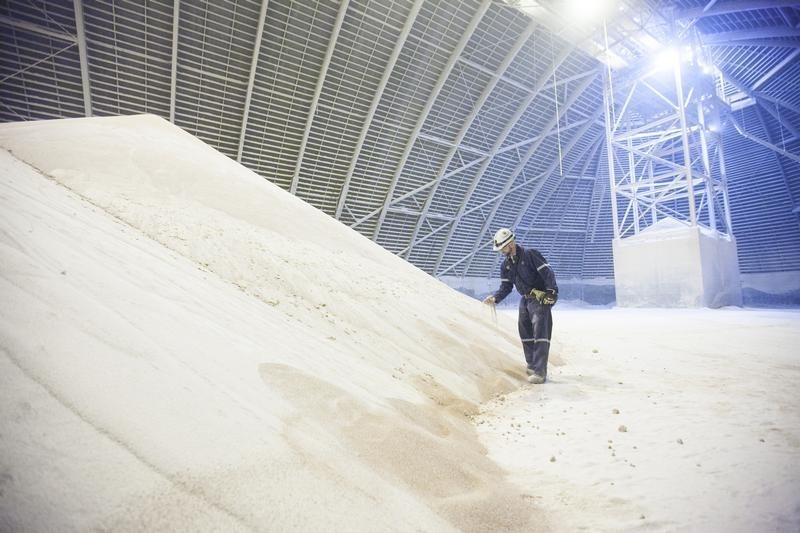By Rajendra Jadhav
MUMBAI, March 28 (Reuters) - The Indian cabinet on Wednesday slashed subsidies for potash-based fertiliser by more than 10 percent for the next fiscal year beginning April 1, as the world's leading importer of the crop nutrient tries to contain a fiscal deficit.
The reduction in government support could lead to a higher retail price for the farmers and potentially dent consumption and imports.
India has fixed the potash subsidy at 11.124 rupees per kg for 2018-19, down from 12.395 rupees this year, a government statement said
Global producers including Uralkali URKA.MM , Potash Corp of Saskatchewan, Mosaic MOS.N , K+S SDFGn.DE , Arab Potash APOT.AM and Israel Chemicals ICL.TA are key suppliers to India.
India relies on imports to fulfill its entire consumption of potash.
The country's imports are estimated to have jumped more than 12 percent to 4.6 million tonnes in the 2017/18 fiscal year, but could fall in the next year due to the lower subsidy, said an official with the country's leading potash importing firm.
"We can't absorb the impact of the lower subsidy and depreciating rupee. We have to raise retail prices," the official said.
Indian farmers are price sensitive and have in the past trimmed purchases when prices rose, said a senior official with a private fertiliser company.
A lower subsidy will weigh on the country's negotiations with overseas sellers, both industry officials said.
"We could not offer a higher price to suppliers due to lower subsidy support," the official with the private fertiliser maker said.
India buys potash from global miners in annual contracts that the south Asian country could sign in June.
Contracts signed by India and China are considered benchmarks globally, and are closely watched by other potash buyers such as Malaysia and Indonesia.
